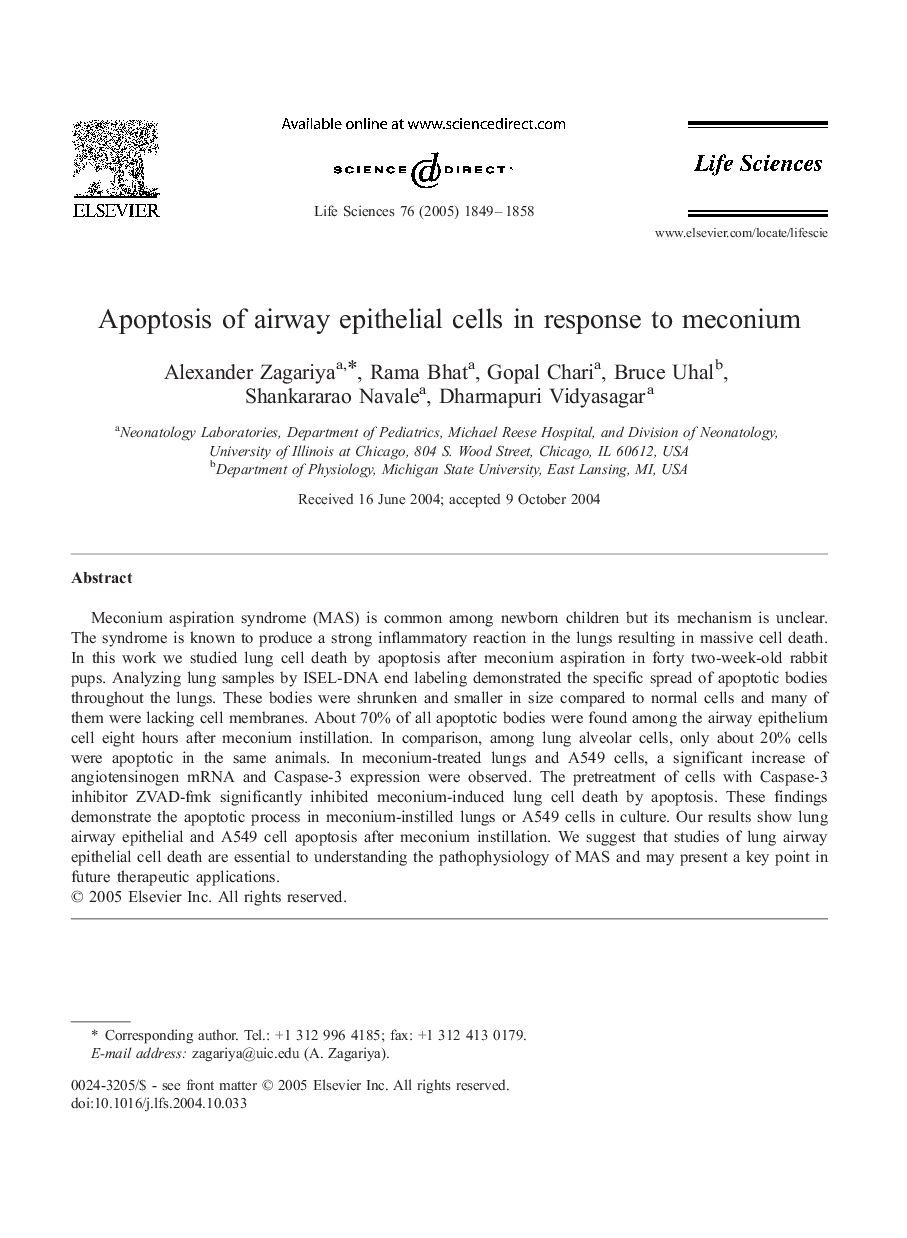| Article ID | Journal | Published Year | Pages | File Type |
|---|---|---|---|---|
| 9012950 | Life Sciences | 2005 | 10 Pages |
Abstract
Meconium aspiration syndrome (MAS) is common among newborn children but its mechanism is unclear. The syndrome is known to produce a strong inflammatory reaction in the lungs resulting in massive cell death. In this work we studied lung cell death by apoptosis after meconium aspiration in forty two-week-old rabbit pups. Analyzing lung samples by ISEL-DNA end labeling demonstrated the specific spread of apoptotic bodies throughout the lungs. These bodies were shrunken and smaller in size compared to normal cells and many of them were lacking cell membranes. About 70% of all apoptotic bodies were found among the airway epithelium cell eight hours after meconium instillation. In comparison, among lung alveolar cells, only about 20% cells were apoptotic in the same animals. In meconium-treated lungs and A549 cells, a significant increase of angiotensinogen mRNA and Caspase-3 expression were observed. The pretreatment of cells with Caspase-3 inhibitor ZVAD-fmk significantly inhibited meconium-induced lung cell death by apoptosis. These findings demonstrate the apoptotic process in meconium-instilled lungs or A549 cells in culture. Our results show lung airway epithelial and A549 cell apoptosis after meconium instillation. We suggest that studies of lung airway epithelial cell death are essential to understanding the pathophysiology of MAS and may present a key point in future therapeutic applications.
Related Topics
Health Sciences
Medicine and Dentistry
Cardiology and Cardiovascular Medicine
Authors
Alexander Zagariya, Rama Bhat, Gopal Chari, Bruce Uhal, Shankararao Navale, Dharmapuri Vidyasagar,
